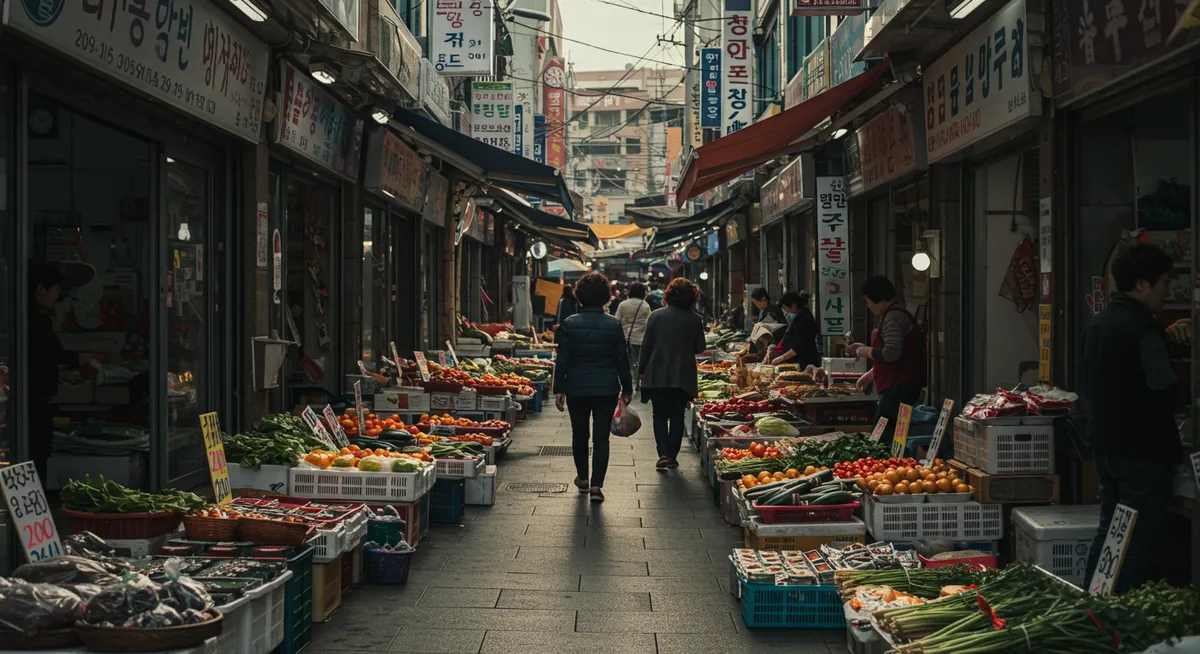
Explore Daegu's Traditional Markets
Table of Contents
Want to find the best travel deals for this destination? Chat with our travel hacking specialist!
Get Travel HacksCategory: daegu-traditional-markets
Your Essential Guide to Daegu's Authentic Traditional Markets
As a long-time explorer of South Korea's hidden gems, I've always found Daegu's vibrant local scene particularly captivating. Stepping into Daegu traditional markets is like journeying back in time, offering an authentic glimpse into the city's rich heritage and bustling daily life. These bustling hubs are not just places to shop; they are living museums where you can immerse yourself in local customs, savor delicious street food, and connect with the heart of this dynamic city.
Seomun Market: Daegu's Historic Heartbeat
When exploring Daegu traditional markets, Seomun Market undoubtedly stands out as the largest and most historic. Established during the Joseon Dynasty, it was one of Korea's top three markets and remains a cornerstone of Daegu's economic and cultural life. Visitors can find everything from textiles and Hanbok fabrics to fresh produce and an incredible array of street food. My personal tip for anyone visiting Seomun Market is to definitely try the local kalguksu (knife-cut noodles); it's a hearty, flavorful experience unique to this market. It’s a sensory overload in the best way, buzzing with energy and the aroma of countless culinary delights.
Yakjeon Alley & Oriental Medicine Market
For a truly unique cultural immersion in Daegu, a visit to Yakjeon Alley and its historic Oriental Medicine Market is a must. This specialized market, dating back to the 17th century, is dedicated to traditional Korean medicine. You'll find countless shops selling various herbs, roots, and ingredients used in herbal remedies, alongside clinics offering consultations. I recall buying some wonderfully fragrant medicinal tea here, which proved both intriguing and soothing. This area provides a fascinating insight into Korea's long-standing healing traditions and complements any visit to things to do in Daegu, offering a quieter, more reflective aspect of the city's heritage.
Chilseong Market: Seafood and Everyday Essentials
Another prominent example among Daegu traditional markets is Chilseong Market, renowned for its fresh seafood and comprehensive range of general goods. While Seomun Market is famous for textiles, Chilseong specializes in daily necessities, electronics, and a bustling fish market section. For those planning a Daegu itinerary for 3 days, this market offers a glimpse into the everyday lives of local residents. My advice? Head there early in the morning for the freshest catches, especially if you're interested in seeing how local vendors operate. It's less tourist-centric than Seomun, offering a more authentic, gritty market atmosphere.
Navigating Daegu's Markets: Tips for Visitors
To fully enjoy Daegu traditional markets, a few practical tips can enhance your experience. Firstly, while some vendors accept cards, it’s always wise to carry cash for smaller purchases and street food. Bargaining isn't common for food items but might be accepted for larger purchases or crafts. Secondly, wearing comfortable shoes is paramount, as you'll be doing a lot of walking! I always find that the best time to visit Daegu's markets is during the late morning, when they're bustling but not overly crowded. Understanding the best time to visit Daegu generally helps you pick the right day. Don't be afraid to try samples and engage with the friendly vendors.
Frequently Asked Questions
What food should I try at Daegu traditional markets?
Are Daegu traditional markets cash-only?
What are the typical operating hours for Daegu markets?
Exploring Daegu traditional markets offers a truly authentic and unforgettable slice of South Korean life. From the historic depths of Seomun Market to the unique allure of Yakjeon Alley and the bustling energy of Chilseong Market, each offers a distinctive cultural tapestry. These vibrant spaces are more than just shopping destinations; they are cultural institutions where you can savor local flavors, discover unique goods, and truly connect with the city's spirit. Ready to dive into the heart of Daegu? Start planning your immersive market adventure today and discover the rich heritage that awaits. For comprehensive travel resources, visit Plan Vacation Asia.